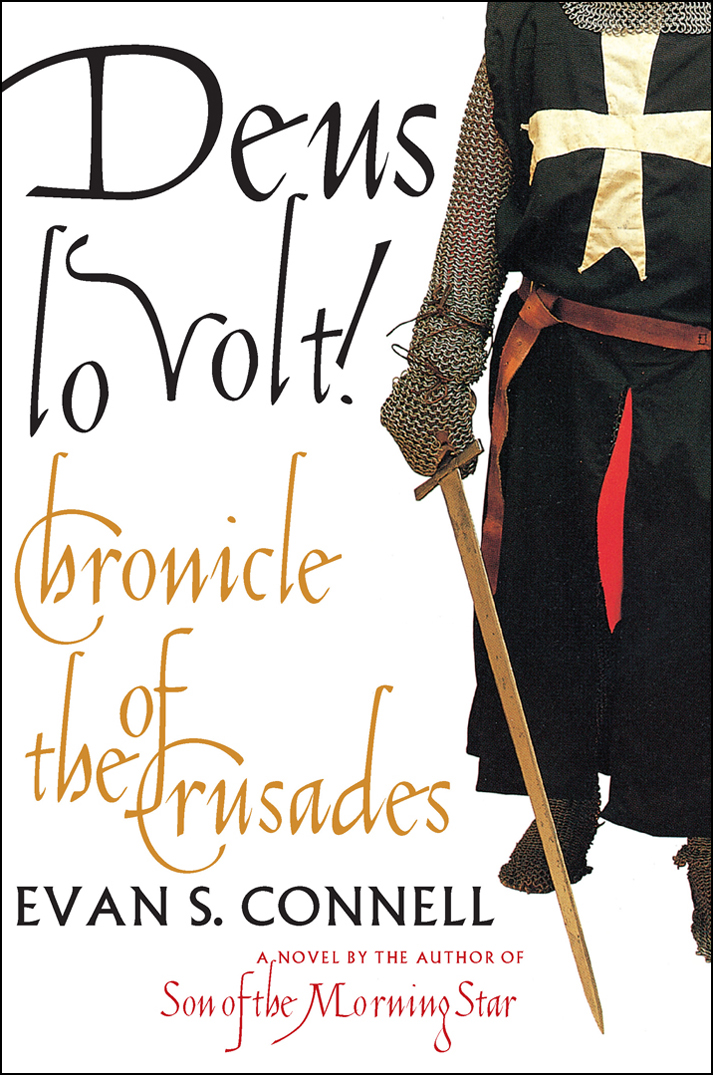
Deus Lo Volt!
A Chronicle of the Crusades
- اطلاعات
- نقد و بررسی
- دیدگاه کاربران
نقد و بررسی

May 1, 2000
Arraying himself wholly in a medieval mindset for this difficult, ungainly but rewarding novel, Connell writes a massive, determinedly archaic history of the crusades from the point of view of a French knight. Jean Joinville, a participant in the disastrous second crusade under Louis IX, begins his chronicle with the first crusade, in 1095, and ends with the taking of Acre in 1290 by the forces of Ashraf Khalil, which effectively ended the mad attempt to make Palestine a Christian protectorate. In assuming Joinville's persona, Connell embraces both the man's style and his conceptual limits, giving the reader no handhold in the form of an introduction or explanatory notes. As presented by Connell, the medieval mind is a promiscuous mix of piety and brutality. By the knight's account, the first crusade--which prompts pogroms against Jews in Germany, involves intricate treachery among the Christian hosts in Asia Minor and culminates in the horrific sack of Jerusalem--is taken to express God's miraculous design. The second crusade pits Saladin against Richard the Lionhearted. Joinville's depiction of the English king captures his inconsistent character, while Saladin evokes some rare passages of nonpartisan admiration. The book ends with Joinville's account of captivity at the hands of infidels in Egypt, of being ransomed with Louis IX and of Louis's homecoming. Connell's antiquarian "forgery," which is in the line of novels like Yourcenar's Memoirs of Hadrian, is a great feat of historic empathy. Or to quote Joinville: "What adventures they recounted left us agape as if we heard some ancient epic, or looked upon some tapestry of days half remembered."

Starred review from March 1, 2000
Connell, the author of 17 novels, has taken on history before with great success in his best-selling Son of the Morning Star, an account of Custer's Last Stand. Here, he doesn't rest on past laurels. Recounted by a French nobleman at the end of the 1200s, this novel of the Crusades is rich history, populated with larger-than-life figures like Richard the Lion-Hearted and the Saracen palanquin Saladin; the action moves through grand set pieces such as the siege of Acre, the disastrous Children's Crusade, and the Westerners' sack of Constantinople. There are more rogues than heroes in this tale of the doomed attempt to take and keep the Holy Land, a venture that failed through human weakness as much as the logistics of supply and communication. The account is written in the style of a medieval chronicler and maintains interest throughout. A very good story indeed, this should appeal to many readers.--David Keymer, California State Univ., Stanislaus
Copyright 2000 Library Journal, LLC Used with permission.

January 1, 2000
By transplanting himself into the era about which he writes, Evan Connell uses his remarkable imagination to craft stories full of vivid, minute details. His historical storytelling prowess--most recently shown in "Son of the Morning Star" (1984), an account of General Custer's battle at Little Big Horn--is further illustrated by his new history, "Deus Lo Volt!" Written in the style of other famous medieval chronicles (such as the "Gesta Francorum"), the narrator is, in fact, a real-life chronicler, Jean de Joinville, a knight in the court of Louis IX (aka St. Louis), who wrote of his own life with St. Louis. In Connell's quasi history, the knight pens another memoir, a prequel to his first, in writing the entire history of the Crusades, from Pope Urban II's initial call-to-arms and battle cry "God wills it!" (to which the title refers) to the crusaders' final defeat during St. Louis' personal crusades. The chronicle rightly treats all of the Crusades as a long series of battles over several hundred years, rather than many separate wars. Using remarkably vivid imagery, Connell researches with the eye of an expert historical scholar and writes with the hand of an expert novelist. ((Reviewed January 1 & 15, 2000))(Reprinted with permission of Booklist, copyright 2000, American Library Association.)




دیدگاه کاربران